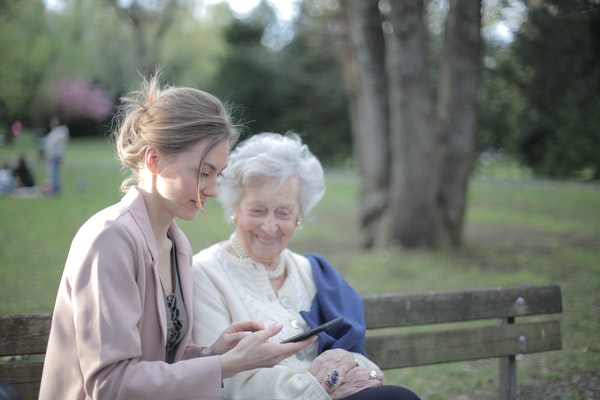Anybody can fall victim to a scam or identity theft, especially during a pandemic when scams are on the rise. Older people tend to be more likely to be victims of scams and identity theft because they may not be as tech savvy as the younger generations. They are also more likely to have a “nest egg,” own a home, and have good credit, which makes them attractive to con artists. This might concern you if you have elderly parents or grandparents. ACCC has some tips for protecting elderly relatives from scams (and subsequent debt):
Protecting Elderly Relatives from Scams
1. Talk to your parents/grandparents about scams.
No one likes to be lectured, especially not your elderly parents or grandparents, so don’t lecture them about scams. If you need to warn your relatives about scams, do so in a way that feels more conversational. For example, you can mention that you saw something about COVID-19 related scams on the news. Gently remind them that if someone who is not their doctor calls or emails them and claims to have a COVID cure or can get them the vaccine if they give them their credit card number, it’s a scam. Other health care fraud includes Medicare fraud. Medicare fraud can take the form of any of the health insurance frauds described above. Senior citizens are frequent targets of Medicare schemes, especially by medical equipment manufacturers who offer seniors free medical products in exchange for their Medicare numbers.
2. Help them check their credit reports online.
Consumers are entitled to one free credit report from each of the three main credit bureaus every year. You can pull your credit report from AnnualCreditReport.com. In fact, due to the pandemic, consumers can now check their credit report for free every week! If your parents or grandparents can use their computer or smart phone without too much difficulty, you can simply tell them about this. For those whose elderly relatives aren’t good with computers, you may have to do this for them.
3. Don’t shame them for not knowing something.
It can be frustrating when your elderly relatives don’t know how to do something, but don’t shame them for it. For Millennials, we have had computers for most, if not all, of our adult lives. Your parents and grandparents haven’t. Additionally, people who were born in the 1930s, 1940s, and 1950s were generally raised to be polite and trusting. Con artists exploit these traits, knowing that it is difficult or impossible for these individuals to say “no” or just hang up the phone.
4. Block spam numbers on their phones.
Protecting elderly relatives from scams can be as simple as just blocking certain numbers on their phones. If they complain to you that they’re getting a lot of spam or robocalls, just block that number for them if they don’t know how. Of course, it seems like every time you block one spam number, another one starts calling. It may be a tedious task, but it’s not difficult to do.
Final Tips on Protecting Elderly Relatives from Scams
It’s important to stay vigilant when protecting elderly relatives from scams. They can happen at any time, so you have to stay on top of it. Don’t forget to stay vigilant and protect yourself as well! Check your own credit reports too, and be sure to contact the police and put a freeze on your credit if you realize you have been a victim of identity theft.
If you struggle to pay off debt, ACCC can help. Sign up for a free credit counseling session with us today.






